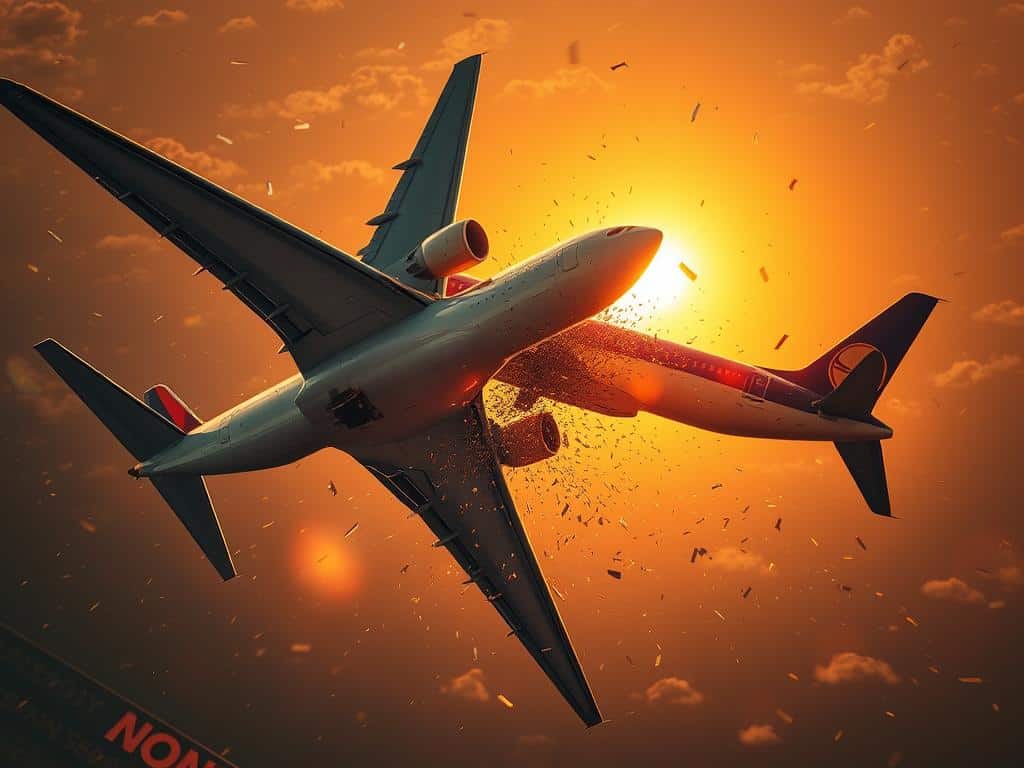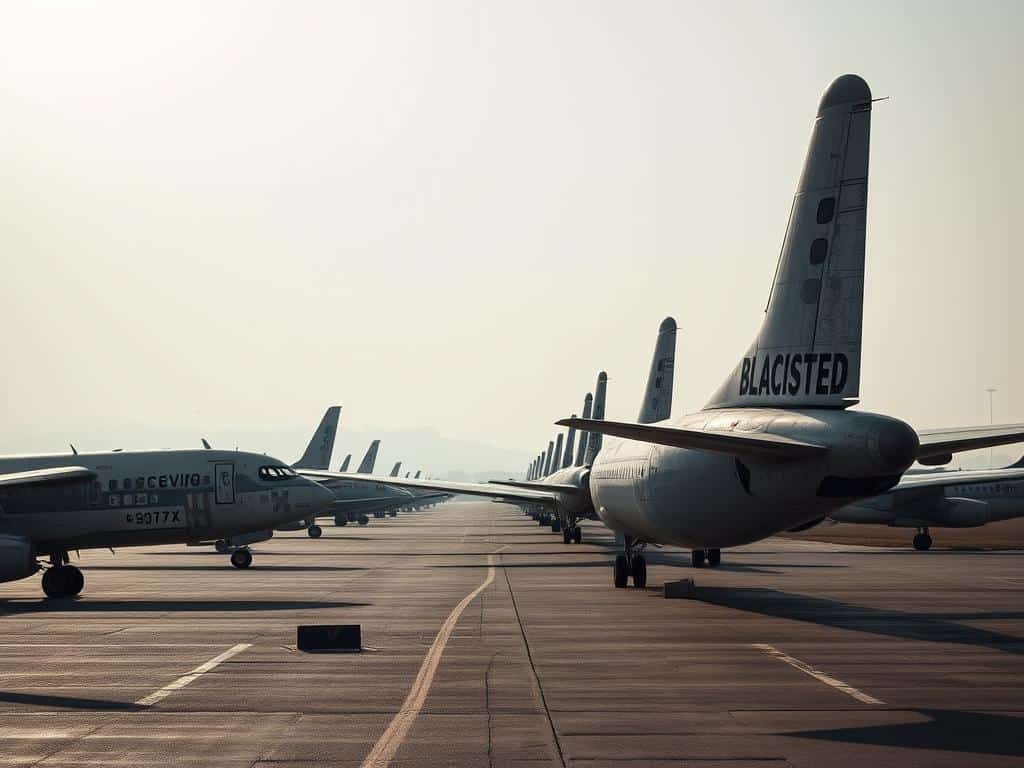Reflecting on my recent travels, I feel amazed by the future of flying. Each flight is a testament to human creativity. It’s a blend of technology and dreams of travelers.
This industry changes our lives and connects us in new ways. It’s not just about getting from one place to another. It’s about the journey itself.
But, the industry faces big challenges today. These include environmental issues and the need for better safety. Yet, it’s on the verge of a big change.
With millions flying every day, it’s vital to look at new technologies. These will change how we travel by air. Let’s imagine what’s coming and how it will affect us all.
Key Takeaways
- The aviation industry is undergoing significant technological changes.
- By 2050, two-thirds of the global population is predicted to live in cities.
- Demand for air transport is expected to grow by an average of 4.3% annually over the next two decades.
- The rise of electric and hydrogen-powered aircraft is set to reshape the future of flying.
- Innovations are making flying better, like virtual reality entertainment.
The Landscape of the Future of Aviation
The aviation industry is changing fast, thanks to digital tech and green efforts. Knowing where air travel stands now helps us guess its future. As travel picks up, the industry faces new challenges and chances.
The Current State of Air Travel
The world is slowly getting back to normal after COVID-19. Air travel is showing signs of recovery, with more people flying. Airlines are ready for more passengers by using new tech and working more efficiently.
Traffic Growth Predictions
The International Civil Aviation Organization says air traffic will almost double by 2036. This growth matches what people want, with more than half the world near an airport. To handle this, we need better airports and more skilled workers.
The Economic Impact of Aviation
Aviation is big for the global economy, adding 3.5% to GDP. It creates jobs and boosts growth in many places. With more flying, we expect even more jobs and economic growth in the future.
Technological Innovations Shaping the Future
The aviation industry is on the verge of a big change thanks to new tech. These advancements make flying safer and more efficient. They also open doors to sustainable flying and space travel.
Advancements in Aviation Technology
New tech is changing how planes are made and fly. Electric engines cut down on pollution and noise. Hybrid engines use electric power for take-off, saving fuel.
Lighter planes thanks to carbon fiber composites fly better. AI helps pilots make smarter decisions with real-time data. This makes flying safer and more efficient.
The Role of Green Energy in Aviation
Green energy is key for a cleaner aviation industry. Companies are using sustainable fuels to lower emissions. Solar power is also being explored for planes.
These steps show the industry’s commitment to being green. It aims to meet global goals and make flying more responsible.
Future Plans for Space Travel
Space travel is becoming a reality with big investments. SpaceX and Blue Origin are leading the way in space tourism. Their work will change both space and air travel.
I see a future where space travel improves air travel. It will open up new ways to explore and connect our world and beyond.

Conclusion
Looking ahead, air travel is set for a big change. The aviation market is expected to grow fast, thanks to new tech like artificial intelligence. This means better efficiency and a better experience for everyone flying.
New technologies like automation and energy-saving planes are key to this change. They show a big push towards making air travel better for our planet. This is all about making flying greener and more efficient.
The growth in air travel also brings big challenges. We need to work together to solve problems like pollution and keeping flights safe. Airlines like Delta are already working on better internet in the sky. This will make flying better and help us meet the needs of the future.
We must find ways to travel that are good for our planet and connect us better. The future of flying is not just about getting from point A to point B. It’s about how we travel, work, and connect with each other.
By focusing on making flying better for our planet, we can create a brighter future. This future will link us closer together and help us overcome today’s big challenges.



